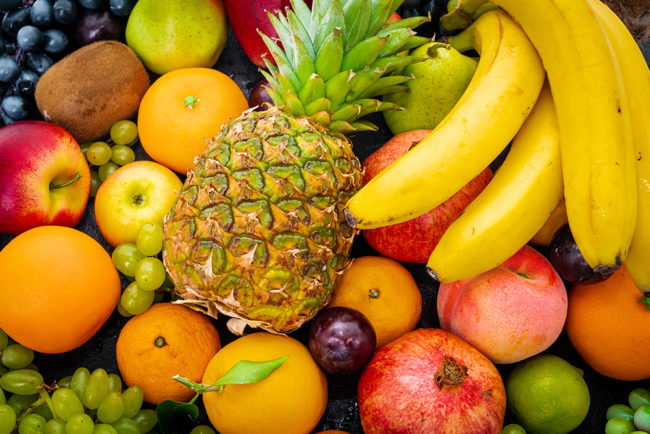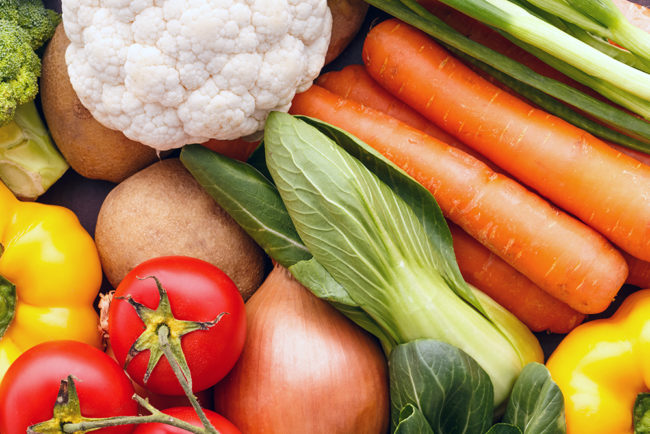
The Organic Food Guide
What is the Organic Food Nutrition Value?
The thing that is usually on most people’s minds when they eat organic food, nutrition, is what drives many to venture away from the common foods that they usually eat in order to try something organically grown. Many people find themselves completely abandoning the fruits and vegetables they used to eat in order to start consuming only organic foods, as they believe them to be better for their bodies. But are organic foods really all they are cracked up to be from a nutritional standpoint?
For a food to be organically labeled, it must fall under certain criteria. First off, any organic food cannot be grown with heavy amounts of pesticides nor can it make use of any genetically modified organisms to spur along its growth. Furthermore, there should be minimal, if any, additives or food coloring to the products labeled as organic. Also, most organic foods have an increased amount of vitamins and minerals as well as antioxidants, although this is not necessarily a firm requirement for an organic product. This final criterion however is where most people get the idea that organic foods are more nutritious than their non-organic counterparts.
So, is there more of a nutritional value to organic foods than non-organic foods? The answer unfortunately is twofold. On one hand, as long as you buy products that are labeled as organic and mention how many vitamins and minerals they contain, than you will probably be getting an organic product that is superior from a nutrition standpoint than other products. On the other hand though, because organic foods cannot be grown with any additives or genetic modifications, some organic items may actually contain less vitamins and minerals than non-organic foods because they simply could not be added later due to the rules governing organic foods. That being said, the organic food nutrition value of nutrients like vitamin C, iron, and calcium are almost always higher in any organic food than their non-organic competitors.

What are the Organic Food Standards?
Organic food standards are defined differently in each and every country per the different rules and regulations set about by that companyís organic food association. In order for a food to be marketed as organic, it must first be certified organic by that countryís organic food governing body. In the United States, the National Organic Program set the standards for organic food, in Canada, the Canada Gazette and the Government of Canada set the organic food standards, in the United Kingdom, the Organic Famers and Growers Organic Standards and the Soil Association determine whether or not a food is organic, and in Australia, the NASAA Organic Standard is the body that defines organic foods.
Although the standards for organic foods are determined by the National Organic Program Standards in the United States, the United States Department of Agriculture makes the final determination about whether or not a food can be classified as organic. As part of the Organic Food Production Act, the USDA is required to examine each and every organic food production facility as well as how organic the food is. At the end of the process, the USDA assigns a USDA Organic seal only to those organic products which are comprised of at least ninety five percent organic ingredients.
The standards required for organic food in America are lengthy, and can be accessed at the National Organic Programs website at www.ams.usda.gov/nop/NOP/standards.html#, but include some of the following. First, a product must have a minimal use of toxic chemicals in it, including but not limited to pesticides and artificial fertilizers. Also, there should be no genetically modified organisms present in any organic foods. Furthermore, there should be little or no amount of food additives or food coloring present in the manufacture of organic products. Only when these organic food standards, and the standards not listed here, are met can a product be certified organic in the United States.

What Are Some of the Most Recognized Organic Food Products?
When you visit your grocery store to pick up some food for you and your family, are you aware of the selection of organic food products that your local supermarket sells? Unfortunately, most people are totally oblivious to whether or not the products they buy are organic or not, and those who are looking for a healthy alternative to the brands they typically use are left in the dark, wondering which products are actually organic or not thanks to improper branding from many companies. With luck though, this guide will help you pick out some of the most popular and most recognized brands of organic foods.
On the hunt for organic products, you should begin your shopping trip with the produce section at your local grocery store, as this is the area where the organic foods are the most clearly labeled. Many large grocery stores, such as Albertsons, Vons, and Ralphs, clearly label which produce is organic, making it easy to choose the right fruits and vegetables for your diet.
Moving along, you should go to the cereal and cracker aisle, as this is another section where the products are clearly labeled as to their organic status. One of the most popular choices here for organic food is the Kashi brand. They have a variety of different cereals and crackers that are all clearly labeled as organic ñ and their prices are usually not more than what you would pay for non organic products.
Finally, when exploring the rest of your grocery store for organic foods, you should always be on the lookout for anything that has the big organic brand on it. Some well known companies like Knudsen and Celestial Seasonings manufacture organic varieties of their foods, which are always a great idea to check out. In the end, just keep your eyes peeled and you will find plenty of organic food products in no time.

